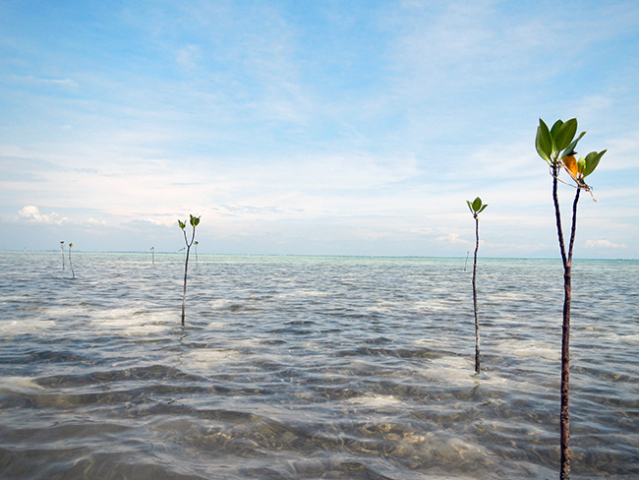11/11/2019 | From 14 to 16 November, the German Maritime Museum (DSM) - Leibniz Institute for Maritime History, the Leibniz Centre for Tropical Marine Research (ZMT) and the University of Bremen, together with other members of the U Bremen Research Alliance (UBRA), have organised a conference on the topic of ‘Media and the Sea’. Researchers from UBRA institutions in Bremen and Bremerhaven as well as scientists and theatre and film producers from Erfurt, Kiel, Siegen, Düsseldorf, Bochum and Berlin will contribute to the programme or take part in panel discussions.
Since the emergence of our contemporary concept of globalisation in the 1960s, talking about the world means, more than ever, also talking about the sea. Hardly any area of human life remains unaffected, if not determined, in one way or another by maritime themes. Nevertheless, the sea remains a notoriously abstract quantity in our everyday lives and it would be hopelessly overwhelming for us to grasp fully and appreciate its influence on our lives. We therefore never understand the ocean and our relationship with it in its entirety, but as a conglomeration of individual phenomena such as those of physics and chemistry, those of biology and ecology, those of considerations of economy and (lacking) sustainability, of engineering sciences and logistics, as well as those of culture, the fine arts, aesthetics, literature, music.
The sea begins to speak only when we depict and project it – not only in images, but also in narratives, numbers, simulations and models, performances and works of art, games and staged productions, maps and legal texts, exhibitions and architecture and much more. The sea is always also a repertory of latent visualizations that await their cultural-technical implementation.
Ultimately, these implementations mean a filtering of the phenomenon of the sea by a human authorship that does not find meanings but creates them – and thus not only influences our view of and thinking about the sea in terms of content ('What do we think about the sea?'), but also in terms of its formal structure ('How do we think about the sea?'). The conference will focus on media practices, strategies and configurations that determine our relationship with and understanding of the sea. This includes their functioning as well as their possible failure – and the often unpredictable effects and artifacts that can result from both.
Conference programme: https://www.dsm.museum/kalender/konferenz-u-bremen-research-alliance-conference-on-media-and-the-sea/
Registration
If you are interested in participating, please send a short registration by e-mail to Dr. Dennis Niewerth (
Conference ‘Media and the Sea’
When: 14 to 16 November 2019
Where: Alfred Wegener Institute, AWI Campus / former North Sea Museum (Bremerhaven), Overseas Museum (Bremen)





